About the Education and Society Minor
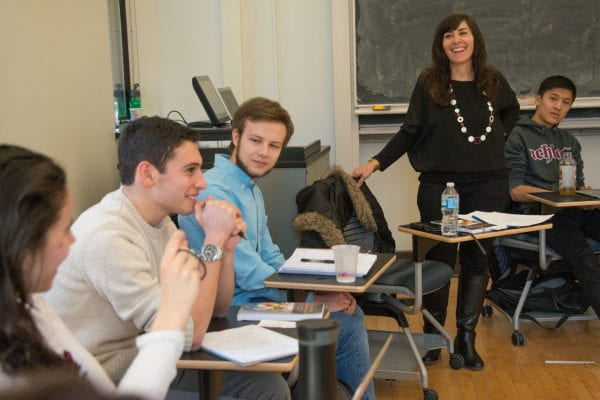
Undergraduate students in the College in any field of study have the option to pursue the Minor in Education and Society. The minor offers students a coherent program of study that reflects the expertise of faculty across key disciplines that comprise the field of education. It provides an intellectual pathway for students among the disparate set of existing education-related course offerings, emphasizing a central theme: the interplay between human development and the social institution of schooling.
At the heart of the Education and Society curriculum is a concern with how individuals and institutions reconcile the tasks of child and youth cognitive development, identity formation, and socialization with the changing role of schooling in society and widespread concerns about social inequality and mobility. Students can take courses from faculty across the university, including courses by instructors from the Urban Education Institute (UEI) and the UChicago Consortium on School Research.
Education and Society coursework provides a background for graduate study in many disciplines or for careers that incorporate education or advocacy, including teaching, public policy, medicine, law, social work, journalism, or government service. It also prepares students to pursue the Social Science’s Division’s other post-BA offerings related to education, for example, by applying for PhD training to understand education through lens of a specific social science discipline or applying to the new Education and Society concentration within the Masters of Arts Program in Social Sciences (or MAPSS).
Declaring the Minor
1) Inform us of your intention to complete the minor before the end of Spring Quarter of your third year. To do this, contact either Professor Lisa Rosen or Professor Marisa Casillas.
2) A Minor Consent Form should be submitted to one of the above contacts no later than the Spring quarter of your third year.
Click here to download the EDSO Virtual Declaration Form.
Program Requirements
Students pursuing the Education and Society minor are required to enroll in CHDV 20100: Human Development Research Design. This research methods requirement stems from our belief that the theoretical study of education should be rooted in a broad understanding of methods, and that the course of study lends itself to the use of both qualitative and quantitative methods. Students unable to enroll in CHDV 20100 may petition for other social science research methods courses to count toward this requirement. A suggested list of alternative methods courses is provided below. Students must also complete four approved electives that consider psychological, social, economic, political, or cultural factors in education. The four approved courses may be taken from the list of courses outlined by the faculty co-administrators annually. Students may also petition for other courses not on the list to be counted toward the minor with the faculty co-administrators.
The Education and Society minor requires a total of five courses, including:
1. CHDV 20100 Human Development Research Design (Students majoring in Comparative Human Development must complete an alternate methods course, as described below).
2. Four approved courses designated as counting toward the Education and Society minor.
Courses counted for the minor:
- May not be double counted with the student’s major(s) or with other minors;
- May not be counted toward general education requirements; and
- Must be taken for quality grades (not P/F)
- Only university-level courses offered by the University of Chicago may be approved for the minor’s requirements; no other form of credit (including Advanced Placement) is allowed.
Comparative Human Development majors declaring the Education and Society minor must add an additional approved course, as CHDV 20100 is a requirement of the major.
Alternative Methods Courses for Comparative Human Development Majors
The following methods courses are approved alternatives for Comparative Human Development majors. Additional methods courses may also be approved by consent from the faculty co-administrators:
- ANTH 21420 Ethnographic Methods
- PBPL 26400 Quantitative Methods in Public Policy
- PSYC 20200 Psychological Research Methods
- SOCI 20001 Sociological Methods
- SOSC 20224 Virtual Ethnographic Field Research Methods
Click here to view a list of courses currently eligible to be counted towards the Education and Society Minor.
Additional information about course offerings for the Education and Society Minor can be found on the UChicago College Catalog, here.
Each year the Committee on Education holds two prize competitions for undergraduate students: The Charles M. Payne B.A. Thesis Prize and the Marylyn C. Grabosky Prize for Research Related to Education. Both prize competitions take place in the spring quarter and are open to any student in the college who is interested in education.
Learn More
Maris Casillas (Assistant Professor in Comparative Human Development) and Lisa Rosen (Assistant Senior Instructional Professor and Associate Director of the Committee on Education) serve as co-directors of the Education and Society Minor, and students interested in declaring the minor can contact either of them to receive approval.
Students interested in receiving email updates with information about courses, events, and research opportunities relevant to the Education and Society Minor Program can sign up to join our newsletter.
Sample Courses by Area
Individual Development and Learning
PPHA 25120. Child Development and Public Policy
Instructor: Ariel Kalil
The goal of this course is to introduce students to the literature on early child development and explore how an understanding of core developmental concepts can inform social policies. This goal will be addressed through an integrated, multidisciplinary approach. The course will emphasize research on the science of early child development from the prenatal period through school entry. The central debate about the role of early experience in development will provide a unifying strand for the course. Students will be introduced to research in neuroscience, psychology, economics, sociology, and public policy as it bears on questions about “what develops?”, critical periods in development, the nature vs. nurture debate, and the ways in which environmental contexts (e.g., parents, families, peers, schools, institutions, communities) affect early development and developmental trajectories. The first part of the course will introduce students to the major disciplinary streams in the developmental sciences and the enduring and new debates and perspectives within the field. The second part will examine the multiple contexts of early development to understand which aspects of young children’s environments affect their development and how those impacts arise. Throughout the course, we will explore how the principles of early childhood development can guide the design of policies and practices that enhance the healthy development of young children, particularly for those living in adverse circumstances, and thereby build a strong foundation for promoting equality of opportunity, reducing social class disparities in life outcomes, building human capital, fostering economic prosperity, and generating positive social change. In doing so, we will critically examine the evidence on whether the contexts of children’s development are amenable to public policy intervention and the costs and benefits of different policy approaches.
Schooling and Society
CHDV 20305. Inequality in Urban Spaces
Instructor: Micere Keels
The problems confronting urban schools are bound to the social, economic, and political conditions of the urban environments in which schools reside. Thus, this course will explore social, economic, and political issues, with an emphasis on issues of race and class as they have affected the distribution of equal educational opportunities in urban schools. We will focus on the ways in which family, school, and neighborhood characteristics intersect to shape the divergent outcomes of low- and middle-income children residing with any given neighborhood. Students will tackle an important issue affecting the residents and schools in one Chicago neighborhood. This course is part of the College Course Cluster: Urban Design.
EDSO 23005. Education and Social Inequality
Instructor: Lisa Rosen
How and why do educational outcomes and experiences vary across student populations? What role do schools play in a society’s system of stratification? How do schools both contribute to social mobility and to the reproduction of the prevailing social order? This course examines these questions through the lens of social and cultural theory, engaging current academic debates on the causes and consequences of social inequality in educational outcomes. We will engage these debates by studying foundational and emerging theories and examining empirical research on how social inequalities are reproduced or ameliorated through schools. Through close readings of anthropological and sociological case studies of schooling in the U.S, students will develop an understanding of the structural forces and cultural processes that produce inequality in neighborhoods and schools, how they contribute to unequal opportunities, experiences, and achievement outcomes for students along lines of race/ethnicity, class, gender, and immigration status, and how students themselves navigate and interpret this unequal terrain. We will cover such topics as neighborhood and school segregation; peer culture; social networks; elite schooling; the interaction between home, society and educational institutions; and dynamics of assimilation for students from immigrant communities.
EDSO 23002. Schooling and Identity
Instructor: Lisa Rosen
This course examines the dynamic relations between schooling and identity. We will explore how schools both enable and constrain the identities available to students and the consequences of this for academic achievement. We will examine these relations from multiple disciplinary perspectives, applying psychological, anthropological, sociological, and critical theories to understanding how students not only construct identities for themselves within schools, but also negotiate the identities imposed on them by others. Topics will include the role of peer culture, adult expectations, school practices and enduring social structures in shaping processes of identity formation in students and how these processes influence school engagement and achievement. We will consider how these processes unfold at all levels of schooling, from preschool through college, and for students who navigate a range of social identities, from marginalized to privileged.
HIST 27307: Schools and Spaces: A Chicago History
Instructor: Nicholas Kryczka
This course fuses urban and educational history into a two-century case study of Chicago. When the Chicago Public Schools closed fifty schoolhouses in 2013, many stressed the links between public education, uneven neighborhood investment, and racial segregation. But this episode was part of a longer regional history of how metropolitan development, labor markets, and anxieties over migration affected educational policy. The course stresses the relationship between educational policy and the politics of urban development, gender, and race. Schools were sites of gendered work, for the women who operated them and for the children who navigated the moral and vocational paths laid for their futures; meanwhile, the rise of racial ghettoes had an enduring impacts on educational inequity and the shape of African American political life. Over the time span covered by the course, the United States became an indisputably “schooled” society, and Chicago was a leading indicator of national trends. Key historic episodes in American education-the rise of the modern high school, the birth of progressive education, the origins of teachers’ unions, the Catholic encounter with race, the fragmentation of suburban school districts, the civil-rights critique of de facto school segregation, the pronounced “failure” of urban education, and the triumph of choice-and-accountability reforms, and the teacher-led resistance that followed-are especially well-illustrated by this course’s focus on Chicago.
SOCI 20192. The Effects of Schooling
Instructor: Ross Stolzenberg
From at least the Renaissance until sometime around the middle of the 20th Century, social class was the pre-eminent, generalized determinant of life chances in European and, eventually, American societies. Social class had great effect on one’s social standing, economic well-being, political power, access to knowledge and even longevity, health and height. In that time, there was hardly an aspect of life that was not profoundly influenced by social class. In the ensuing period, the effects of social class have receded greatly, and perhaps have even vanished. In their place formal schooling has become the great generalized influence over access to the desiderata of social life, including food, shelter, political power, medical care, etc. So it is that schooling is sociologically interesting for reasons that go well beyond education. The purpose of this course is to review what is known about the long term effects of schooling.
SSAD 21000. Race and American Public Schools
Instructor: Eve Ewing
This course explores the fundamental role that race and racism have played in the structure, stratification, and social functioning of American public schools. Working from a historical perspective that then moves into contemporary policy challenges, we will use both theoretical and empirical texts to explore questions of identity, otherness, and justice. What can the histories of black and indigenous schooling reveal about the educational project of the nation? How does the notion of whiteness as property shape public presumptions about what makes a “good” school? How have attitudes toward immigrant students changed as demographic and migration patterns have shifted? Perhaps most fundamentally, can schools be engines for racial justice, and if so, how?
SSAD 43412. Cultural Studies in Education
Instructor: Carlos Angeles
Using cultural studies as the point of departure, this course explores the intersection of culture, power, and language within schools and school systems. In accordance with the tenets of cultural studies, the course is guided by the presumption that culture (as it is realized through the functioning of schools and their agents and the experiences, knowledge, expressions, dispositions, and meaning-making of people of color, women, and low-income or working class individuals) is critical for understanding and intervening in the reproduction of social and economic inequality.
In order to understand the reproduction of inequality we will examine theories and empirical investigations that explore how structures of domination and subordination are reproduced and social difference and inequality are reinscribed through the cultural practices that are reflected in schools. We will also analyze the extent to which the cultural practices and experiences of marginalized individuals simultaneously contribute to the process of reproduction and also affirm the emancipatory possibilities of resistance.
The course begins with an introduction to the history, development, and basic tenets of cultural studies. Throughout our work together, we will examine how social class, race/ethnicity, and gender are represented in literacy, language, and cultural theories and research that examine reproduction and resistance. We conclude with a more in-depth examination of the active role schools and other learning settings (might) play in the processes of reproduction, agency, and resistance. The potential for social transformation will be taken up throughout the course in class discussion.
ECON 28700. Economics of Education
Instructor: Derek Neal
This course explores economic models of the demand for and supply of different forms of schooling. The course examines the markets for primary, secondary, and post-secondary schooling. The course examines numerous public policy questions, such as the role of government in funding or subsidizing education, the design of public accountability systems, the design of systems that deliver publicly funded (and possibly provided) education, and the relationship between education markets and housing markets.
Educational Policy and Evaluation
CHDV 20100. Research Designs in the Social Sciences
Instructor: Guanglei Hong
This course is designed for graduate students and advanced undergraduate students from the social sciences, education, public health science, public policy, social service administration, and statistics who are involved in quantitative research and are interested in studying causality. The goal of this course is to equip students with basic knowledge of and analytic skills in causal inference. Topics for the course will include the potential outcomes framework for causal inference; experimental and observational studies; identification assumptions for causal parameters; potential pitfalls of using ANCOVA to estimate a causal effect; propensity score based methods including matching, stratification, inverse-probability-of-treatment-weighting (IPTW), marginal mean weighting through stratification (MMWS), and doubly robust estimation; the instrumental variable (IV) method; regression discontinuity design (RDD) including sharp RDD and fuzzy RDD; difference in difference (DID) and generalized DID methods for cross-section and panel data, and fixed effects model. Intermediate Statistics or equivalent is a prerequisite. This course is a pre-requisite for “Advanced Topics in Causal Inference” and “Mediation, moderation, and spillover effects.”
PBPL 25860. Crime, Justice, and Inequality in the American City
Instructor: Chad Broughton
We will study the social and policy contexts aimed at promoting the development, health, and well-being of young children, with an emphasis on our host nation and the European Union. Topics to be covered include family policies such as fertility and related family planning policies; marriage and family formation; policies targeting working parents (i.e. parental leave); income support policies for lone or low-income parents; as well as child care and early education programs targeted directly to children.
SOCI 26009. Introductory Statistical Methods and Applications
Instructor: Yanyan Sheng
This course introduces and applies fundamental statistical concepts, principles, and procedures to the analysis of data in the social and behavioral sciences. Students will learn computation, interpretation, and application of commonly used descriptive, correlational, and inferential statistical procedures as they relate to social and behavioral research. These include z-test, t-test, bivariate correlation and simple linear regression with an introduction to analysis of variance and multiple regression. The course will integrate the use of Stata as a software tool for these techniques. This course is equivalent to SOSC 20004/30004 (Statistical Methods of Research I), CHDV 20101/30101 (Applied Statistics in Human Development Research), PSYC 20100 (Psychological Statistics), and other introductory level applied statistics courses.
PBPL 27919: Research in School Improvement
Instructor: David Johnson
Research evidence and data play an increasingly important and complex role in efforts to reform under-performing school systems in the United States. Both education policy and practice increasingly rely on sophisticated understandings of a dynamic interplay of complex organizations, systems, and policymaking. This course introduces students to cutting edge models for using research and data public school reform efforts, including examples of randomized control trials, district-based research, research-practice partnerships, and quality improvement strategies. The course includes concrete illustrations of research that reshaped educational practice drawn from the UChicago Consortium on School Research.

Anjali Adukia
Assistant Professor, Harris School of Public Policy
Interests: Education inequality, institutional interventions, education and health
━━━━━━━━━━━━━

Elaine Allensworth
Lewis-Sebring Director, Consortium for Chicago School Research, Urban Education Institute
Interests: High school graduation, college readiness, school leadership, school improvement
━━━━━━━━━━━━━
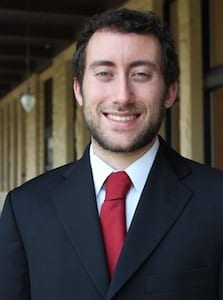
Michael Dinerstein
Assistant Professor, Kenneth C. Griffin Department of Economics
Interests: Public economics, industrial organization, economics of education
━━━━━━━━━━━━━

Eve Ewing
Assistant Professor, School of Social Service Administration
Interests: Race and racism, urban K–12 public schools, public sociology, black feminism, qualitative research methods
━━━━━━━━━━━━━
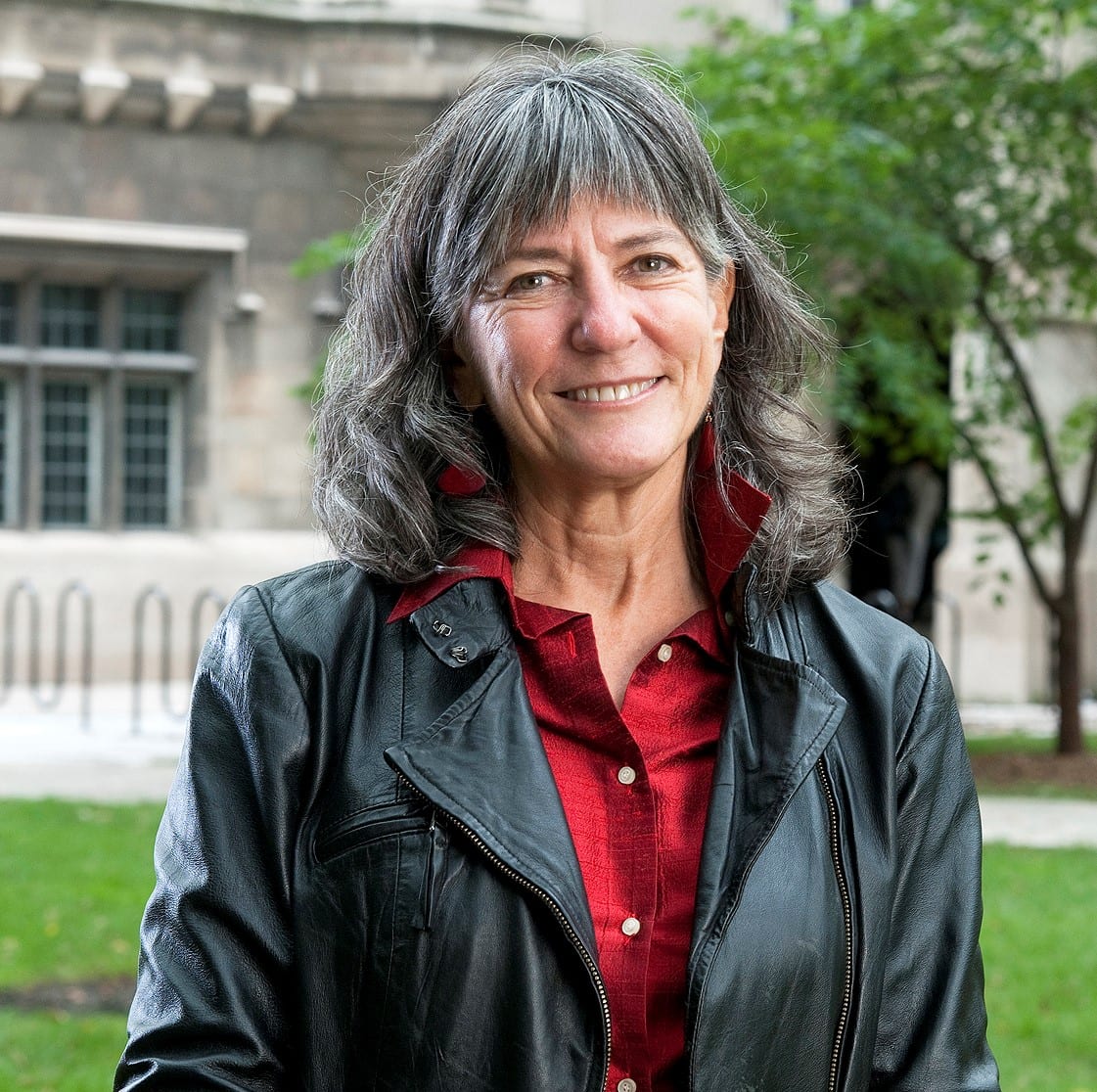
Susan Goldin-Meadow
Beardsley Ruml Distinguished Service Professor, Department of Psychology and Comparative Human Development
Interests: Language development and creation, gesture’s role in communicating, thinking, and learning
━━━━━━━━━━━━━
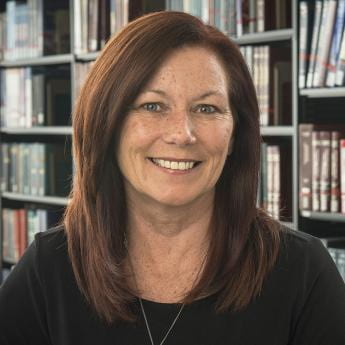
Deborah Gorman-Smith
Dean, School of Social Service Administration, and Emily Klein Gidwitz Professor
Interests: Development, risk, prevention of youth aggression and violence
━━━━━━━━━━━━━

Guanglei Hong
Associate Professor, Department of Comparative Human Development
Interests: Quantitative methods, social causation, educational policy effectiveness
━━━━━━━━━━━━━

Tanika Island Childress
Acting Director, Urban Education Institute, Director and CEO, UChicago Charter School
━━━━━━━━━━━━━

Ariel Kalil
Professor, Harris School of Public Policy
Interests: Child cognitive development, parental engagement, economic inequality
━━━━━━━━━━━━━

Micere Keels
Associate Professor, Department of Comparative Human Development
Interests: Race-ethnicity, inequality, poverty, and the integration of quantitative and qualitative methods.
━━━━━━━━━━━━━

Susan Levine
Rebecca Ann Boylan Professor in Education and Society, Dept. of Psychology
Interests: Cognitive development, development and plasticity of spatial skills, early quantitative development, language development and functional plasticity in children with early brain injury
━━━━━━━━━━━━━
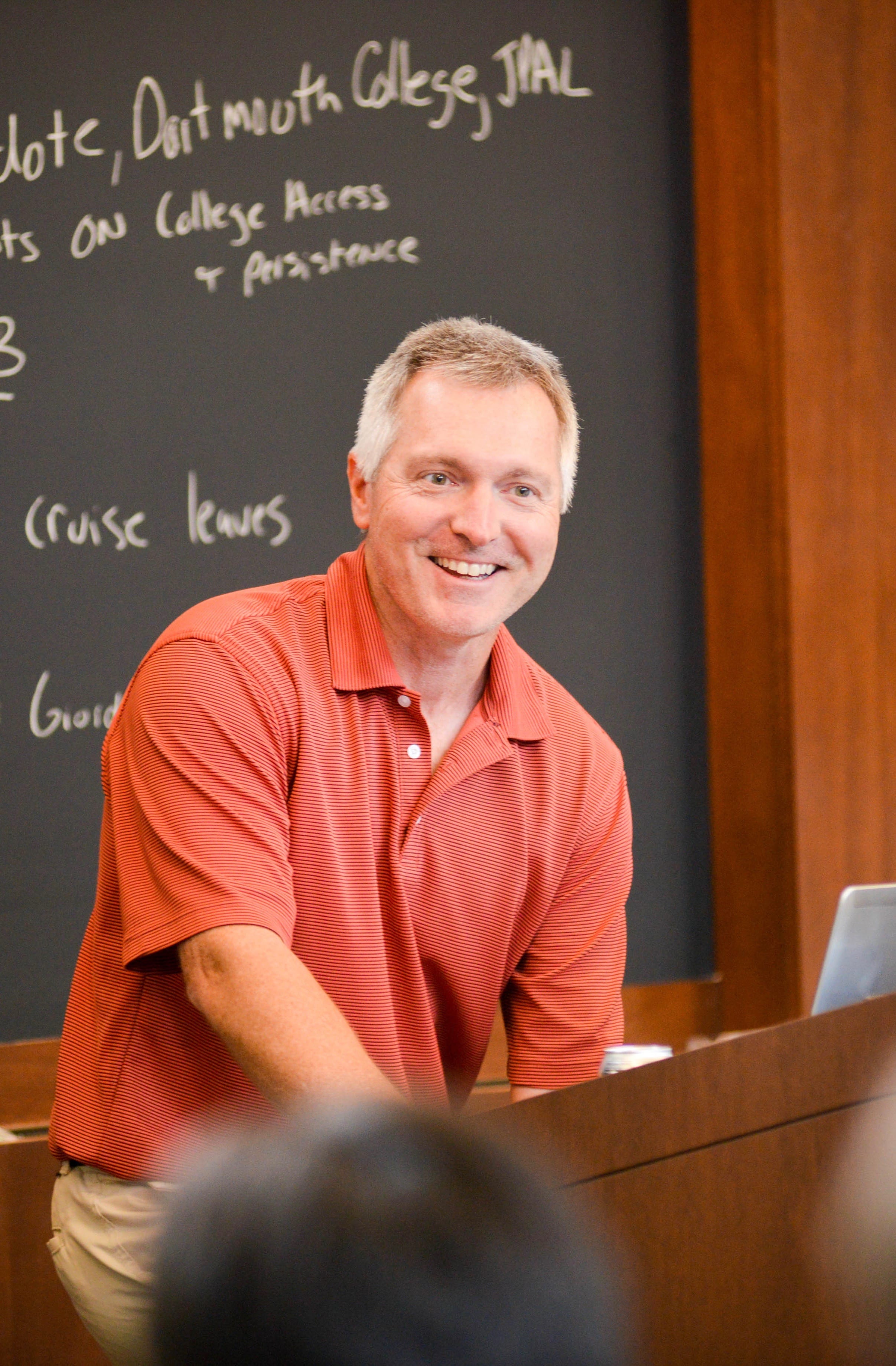
John List
Kenneth C. Griffin Distinguished Service Professor, Kenneth C. Griffin Department of Economics
Interests: Experimental economics, field experiments, education, youth violence, economics of charity, environmental economics, experiments in firms
━━━━━━━━━━━━━
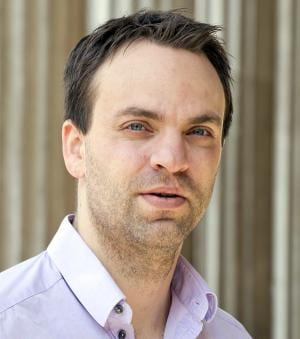
Magne Mogstad
Gary Becker Professor, Kenneth C. Griffin Department of Economics
Interests: Labor economics; public economics; analysis of social mobility and inequality
━━━━━━━━━━━━━

Derek Neal
Professor, Kenneth C. Griffin Department of Economics
Interests: Labor, black-white wage inequality, economics of crime, education policy.
━━━━━━━━━━━━━

Stephen Raudenbush
Lewis-Sebring Distinguished Service Professor, Dept. of Sociology and the Harris School of Public Policy
Interests: Sociology of education and quantitative methods
━━━━━━━━━━━━━
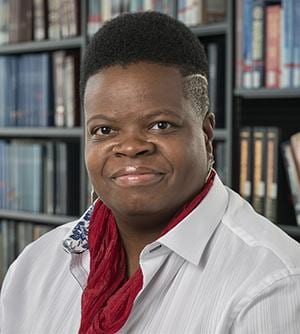
Shantá Robinson
Assistant Professor, School of Social Service Administration
Interests: Education, Urban Schools, Race, Ethnicity, and Culture
━━━━━━━━━━━━━

Melissa Roderick
Herman Dunlap Smith Professor, School of Social Service Administration
Interests: Urban school reform, high school reform, high-stakes testing, minority adolescent development, school transitions
━━━━━━━━━━━━━

Lisa Rosen
Assistant Senior Instructional Professor and Associate Director of the Committee on Education
Interests: Education and social inequality, designing urban schools to reduce social inequality in educational achievement, the social context of urban schooling, and the interplay of schooling and identity.
━━━━━━━━━━━━━

Dana Suskind
Professor, Departments of Surgery and Pediatrics
Interests: Language development, child development, cochlear ear implantation
━━━━━━━━━━━━━

Amanda Woodward
Dean, Division of the Social Sciences, and William S. Gray Distinguished Service Professor, Department of Psychology
Interests: Social cognition in infants and young children, cultural and community influences on children’s learning strategies, social-cognitive development.
━━━━━━━━━━━━━
